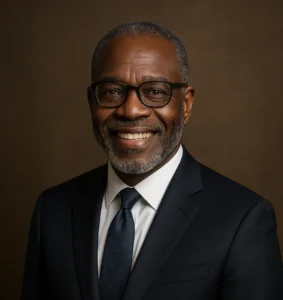There are many commonalities between leadership in general and Christian leadership in particular. There are stark, even diametrically opposed, differences too. The primary source of power to influence is one of them; and it is everything!
My heart skipped a beat. Jerry, who has had enough of Christian leadership nonsense of late, was passionately shaming some unnamed pastors for preaching from Robert Greene’s 1998 bestseller The 48 Laws of Power. I began to wonder: were these pastors comparing and contrasting Greene’s ‘laws’ with biblical principles of leadership and telling Christ followers “not so with you” or were they actually promoting the former?
I own a copy of the said book, one of over 1.2 million copies sold in the United States alone and translated into 24 languages. Fast Company called the book a “mega cult classic.” You see, I have been a student of leadership for some 20 years, informally, semi-formally and formally. In fact, just this weekend I received in the mail my official Master of Arts in Global Leadership certificate from Fuller Theological Seminary after a transformational three-year journey.
My bookshelves are loaded with all sorts of leadership books: the good, the bad and the ugly. I search for principles, those timeless, universal laws that are true for any people in any sphere of life in every age. So in Physics, for example, the law of gravity holds true wherever you are irrespective of gender, race, religion, creed or social status. Similarly, there are leadership principles that are timeless and universal truths like the laws of influence, the requirement of vision and mission (picture of the future, destination, direction, objective, goals) and absolute need for clear communication.
“NOT SO WITH YOU”
These things just listed, if we were to draw a Venn diagram of A. General leadership and B. Christian leadership, will be found in the area of intersection (AB) as illustrated below.
Having said that, there are things that are characteristic of General leadership that cannot be true of Christian leadership and vice-versa. For example Greene’s Law 15 is “Crush your enemy totally” (2002, 57); “But I [Jesus] say, love your enemies! Pray for those who persecute you!” (Matthew 5:44) When I think of the guy who falsely accused me of assault and wasted my time, energy and $15,000 in legal fees there is no doubt I prefer Greene’s Law 15; leading Christ’s way is hard.
Jesus Christ himself minced no words that some things are different in His Kingdom. He once said about power, when Mrs. Zebedee came to lobby for his two sons James and John to hold key positions in His Kingdom: “You know that the rulers in this world lord it over their people, and officials flaunt their authority over those under them. But among you it will be different. Whoever wants to be a leader among you must be your servant, and whoever wants to be first among you must become your slave. For even the Son of Man came not to be served but to serve others and to give his life as a ransom for many” (Matthew 20:25-28, NLT, emphasis mine).
THREE POWER BASES
“But among you it will be different.” It cannot be clearer than that: there are exclusives when it comes to Christian leadership and Christ followers shouldn’t fool themselves. Bobby Clinton’s extensive leadership research resulted in the observation that a person’s influence has three different sources or what he calls “power bases” which refers to “the source of credibility, power differentials, or resources which enables a leader to have authority to exercise influence on a follower” (2001, 439). The three different kinds of power bases are positional, personal and spiritual.
1. POSITIONAL POWER–this is influence exercised because of one’s position or title in society or an organization. It is extrinsic and only works because it has been granted by those with even greater authority eg. CEO appointed by a Board. People may submit because of hierarchy; but not because they have really granted the leader permission to influence them beyond that context. In his New York Times bestseller, The 5 Levels of Leadership, John C. Maxwell is unequivocal that “position is the lowest level of leadership–the entry level. The only influence a positional leader has is that which comes with the job title. People follow because they have to” (20011, 7, emphasis mine). This is is Level 1, ground floor. I worry when Christian leaders jostle for positions like bishop and archbishop and will kill over titles like ‘Rev. Dr.,’ ‘Very Rev.,’ ‘Major Prophet’ and ‘Apostle General.’ Christian leaders should examine their motives and check their shadows (a.k.a. false self) why they crave these positions and titles. The recent rush for cheap doctorates is a disgrace to Christ’s church! It is a sign of deep sickness which needs strong medicine. Only the true and pure Gospel fully applied by the power of the Holy Spirit can cure this.
2. PERSONAL POWER–this is influence exercised through a person’s mix of personality, charisma, connections, knowledge, character, skills, expertise, access to info, networth and behaviour. This is the bread and butter of the multi-million motivational industry. It’s mostly about increasing personal power. In summary, “this kind of power depends on the confidence and trust a person generates from the people he or she is attempting to lead” (Reese & Loane 2012, 116). Here, people grant you permission to lead them because of who you are, what you do (or have done), what you represent and how much you mean to them. So Maxwell’s Level 2 is Permission, Level 3 Production, Level 4 People Development and Level 5 Pinnacle (which is developing other leaders to Level 4). While all these elements of personal power are somewhat more intrinsic than positional leadership, and that may be the ceiling for the rest of the world, for the Christian leader even this will not suffice. I find many Christian leaders trying to better themselves and polish their craft to gain more influence. This is better than just positions and titles and hierarchy; but it still isn’t best. Even Maxwell’s Level 5 which he calls ‘the Pinnacle’ isn’t really the highest point for Christian leaders.
3. SPIRITUAL POWER–finally, this is influence exercised because of the perception of the person’s spiritual authority. Again, according to Reese & Loane, “The followers recognize evidence of a close relationship with God and see the leader as credible and trustworthy because of his or her apparent close relationship with God” (2012, 116). I find it curious that words like ‘perception’ and ‘apparent’ are used because people can fake this or even go for a false version of spiritual power from the occult. Again, the numerous emerging testimonies of ‘pastors’ going for occult powers to influence people is heart-breaking. It is pure evil; anti Christ. Effectual Christian leaders, whose being and doing counts on earth and in heaven, value spiritual authority as their primary power base. Again Reese & Loane say, “And this spiritual authority flows out of a deep concern for and commitment to intimacy with God and a life lived with integrity. Their influence does not exclude personal or positional authority, but these power bases become secondary. Over time, their communities increasingly recognize their lives as characterized by spiritual power and authority.” (2012, 116). We have a problem, a big problem, when Christian leaders and pastors depend more on positional and personal power than spiritual power.
CONCLUSION
It is no wonder then that “the people who know their God shall be strong, and carry out great exploits“ (Daniel 11:32b, KJV, emphasis mine), including resisting the smooth talking of those who oppose Christ and His cause. They have spiritual power, and that is everything. Not everything leadership is great or even good for the Christian leader. O for prudence, wisdom and discernment to value what counts in Christ’s marking scheme! For the Christian leader, positional power is good. Personal power is better. “Every good and perfect gift is from above.” But the greatest and best is spiritual power.
References
Clinton, Robert J. 2001. Clinton’s Biblical Leadership Commentary Series, Commentary CD vol. 2. Altadena, CA: Barnabas.
Greene, Robert and Joost Elffers. 2002. The 48 Laws of Power. London: Profile Books.
Maxwell, John C. 2011. The 5 Levels of Leadership. New York, NY: Hachette Book Group.
Reese, Randy D. & Robert Loane. 2012. Deep Mentoring: Guiding Others on Their Leadership Journey. Downers Grove, IL: InterVarsity Press.













